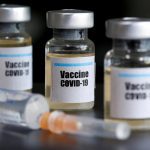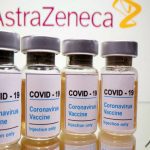AstraZeneca has disclosed that it has “voluntarily paused” late-stage trials of the highly-anticipated COVID-19 vaccine it is developing with the University of Oxford after one of the study volunteers developed an unexplained illness.
The AstraZeneca-Oxford vaccine is seen as one of the most promising of the vaccines against coronavirus that are currently under development.
AstraZeneca said that in large trials, illnesses would sometimes happen by chance but the issue had to be reviewed independently.
The drug is in trials involving thousands of people in the United States, Brazil, South Africa and the UK where the patient fell ill.
Florian Krammer, professor of microbiology at the Icahn School of Medicine at Mount Sinai said the fact a patient had fallen ill underscored the need for extensive trials.
Clinical holds are not uncommon, but AstraZeneca’s is the first phase-three COVID-19 vaccine trial known to have been put on hold.
It is unclear how long the suspension will last and shares of the company fell more than six percent in after-hours trading on the New York Stock Exchange.
The progress of the company’s trial – and those of all COVID-19 vaccines in development – are being closely watched given the pressing need for new ways to curb the global pandemic.
There are currently nine vaccine candidates in Phase III trials.
Separately, nine leading US and European vaccine developers promised on Tuesday to uphold the scientific standards in the global race to contain the pandemic.
The companies, including Pfizer, GlaxoSmithKline and AstraZeneca, in a joint statement made a “historic pledge … to uphold the integrity of the scientific process as they work towards potential global regulatory filings and approvals of the first COVID-19 vaccines”.
The head of the Food and Drug Administration, the US regulator, said last month that the normal approval process could be bypassed for a COVID-19 vaccine if officials were convinced the benefits outweighed the risks.
Developers globally have yet to produce large-scale trial data showing actual infections in participants, but Russia granted approval for a COVID-19 vaccine last month, prompting some Western experts to criticise a lack of testing.
The head of China’s Sinovac Biotech said most of its employees and their families have already taken an experimental vaccine developed by the Chinese firm under the country’s emergency-use programme.














